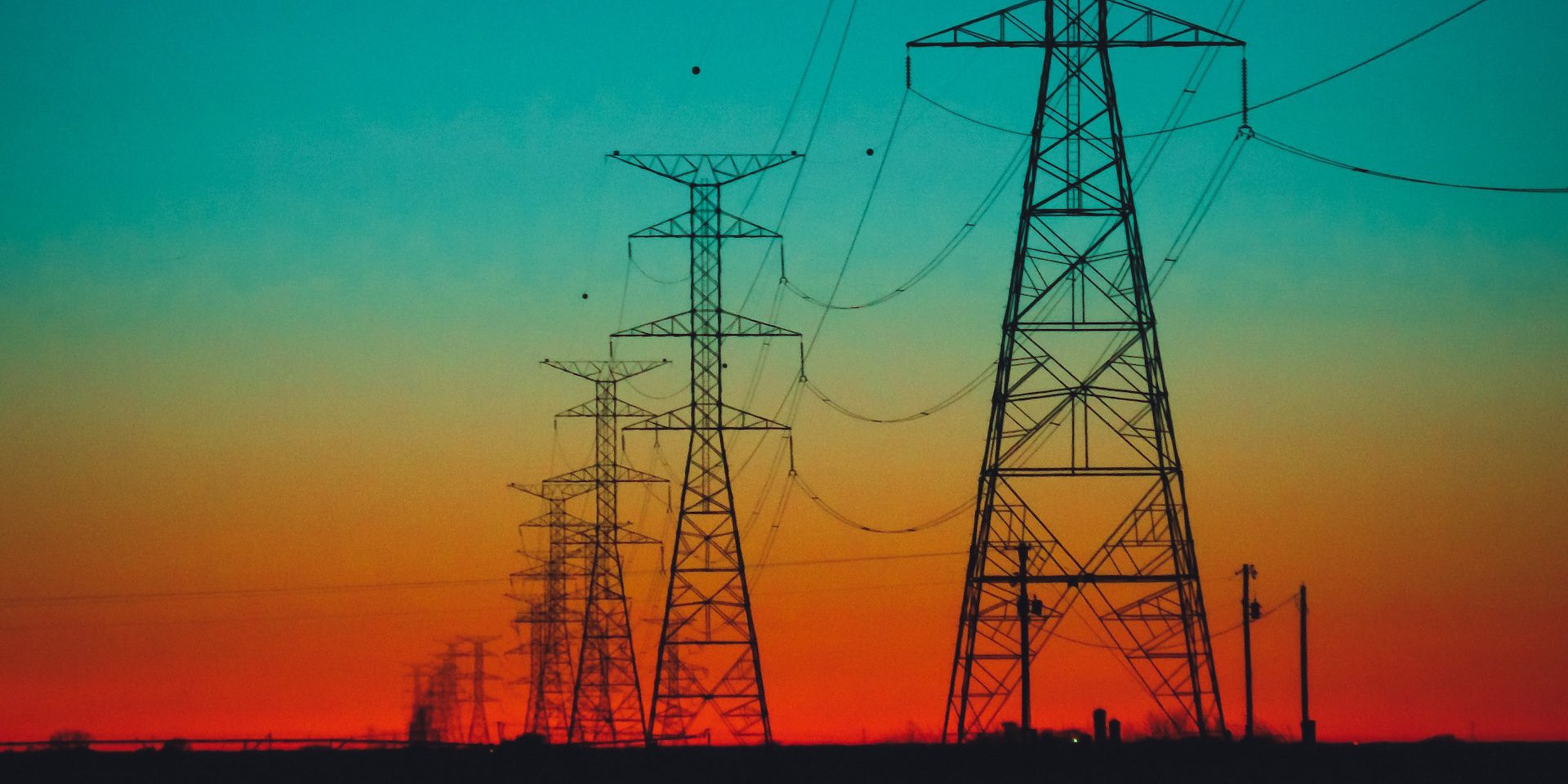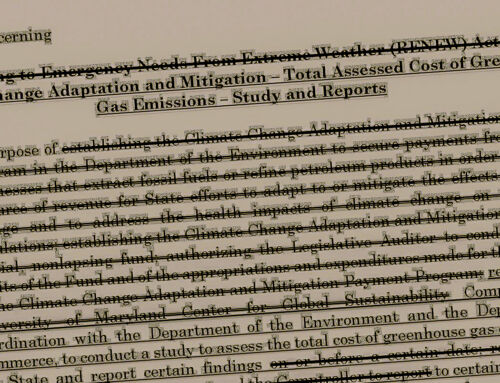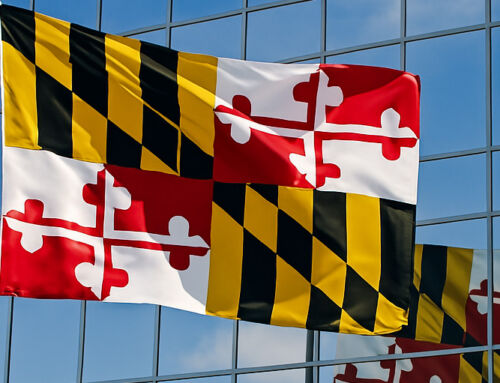View by Topic
Recent Articles
-
New Environmental Laws from the 2025 Maryland Legislative SessionSaturday, April 26th, 2025
-
Migratory Bird Treaty Act Does Not Prohibit Incidental Take – AgainSaturday, April 19th, 2025
-
President Trump’s Bold Step to Rein in State Overreach in Climate ChangeSaturday, April 12th, 2025
-
Mandatory GHG Disclosures in Maryland Real Estate ContractsSaturday, April 5th, 2025
View by Month/Year
“Green Building Law Update” Headlines
Recent Articles & News from
Stuart Kaplow’s blog
at GreenBuildingLawUpdate.com
- BEPS Redux: The Most Far Reaching Environmental Legislation of the 2025 Maryland General Assembly May 4, 2025
- New Environmental Laws from the 2025 Maryland General Assembly Session April 27, 2025
- Migratory Bird Treaty Act Does Not Prohibit Incidental Take – Again April 20, 2025
- President Trump’s Bold Step to Rein in State Overreach in Climate Change April 13, 2025
Subscribe to the Green Building Law Update!
Stuart Kaplow brings his expertise and extensive experience to the table with his unique digital publication, "Green Building Law Update". Subscribers receive regular updates to keep them informed about important issues surrounding Environmental Law, Green Building & Real Estate Law, as well as the emerging demand for Environmental Social Governance (ESG).
Get fresh content through the lense of Stuart Kaplow's cutting-edge expertise, innovative commentary and insider perspective. Don't miss another issue! Subscribe below.

Maryland is Leading the Transition to All Electric Buildings
There is a move toward all electric buildings as a way to reduce greenhouse gas emissions and combat climate change. The state of Maryland is leading the way in this movement, including several local jurisdictions adopting all electric building code laws.
All electric building codes require that new construction and major renovations be powered by electricity rather than fossil fuels. This means that buildings must use electric heating, cooling, and hot water systems instead of natural gas or oil. It also means that buildings and the power grid must be equipped to handle the increased electrical load, with sufficient capacity and infrastructure to support electric appliances and equipment.
Most business leaders understand the need to mitigate greenhouse gas emission risk and many companies are already seized with the multi-trillion dollar economic opportunity that accompanies this economy wide transition to all electric buildings.
In 2022, the Maryland legislature enacted the Climate Solutions Now Act (SB 528) which mandates a 60% reduction in the state’s GHG emissions by 2031 relative to 2006 levels and net zero GHG emissions by 2045. Dramatically, that Act includes the requirement “to transition to an all electric building code in the State” and expressly “supports moving toward broader electrification of both existing buildings and new construction as a component of decarbonization.”
No other state has ascribed into law moving so quickly and so broadly with economy wide climate ambitions by decarbonization.
But be aware that depending upon how that Act is implemented there are very real U.S. Constitutional concerns of Federal preemption by the 2005 Energy Policy and Conservation Act which expressly preempts State and local regulations concerning energy conservation and specifically will not allow banning natural gas in buildings even when characterized as decarbonization.
A recent report by the Maryland Codes Administration describes that in 2022 within Maryland, most of the electricity is generated from natural gas (48%), followed closely by nuclear (37%), then from coal fired power plants (11%) and petroleum fired power plants (<1%). A small percentage comes from hydroelectric (<1%) and non-hydroelectric renewables (3%).
Significantly, Maryland uses more energy than it produces, so the state also draws electricity from the interstate power grid. According to the U.S. Energy Information Administration, Maryland uses as much as 60% more energy than it generates, so any additional electricity demand from buildings that use all electric systems will either have to come from increased in state generation or be imported from other states. Because the electric grid itself relies in large part on carbon based fossil fuel, increasing demand for electricity from the grid is not carbon neutral such that all electric building codes in Maryland will result in more coal generated power than is used today.
So, the change to all electric buildings is not a simple issue.
The Biden administration issued a rule on December 7, 2022 through the U.S. Department of Energy that orders all new and refurbished federal buildings to become fully electrified by 2025. In the guidance document explaining the announcement, they note that this will result in an increase in carbon dioxide, nitrous oxide, mercury, and sulfur dioxide emissions:
“DOE’s analyses indicate that the proposed regulation would save a significant amount of site energy; however, switching from gas loads burned on-site to electric loads produced off-site, at national average level emission rates, would result in an increase of CO2, N2O, Hg, and SO2 emissions with a decrease in NOX and CH4 emissions.”
So, again, the change to all electric buildings is not a simple issue.
There was a hue and cry this past January about the government coming for people’s gas stoves and while that story may have been overcooked nationally, yes, it is correct that in Maryland the State government is in the process of banning newly installed gas stove and all gas appliances in residential as well as commercial building as part of this all electric building mandate.
Not surprisingly there was no meaningful opposition to that SB 528 mandate last year, bar some negative testimony from the natural gas utilities.
Several jurisdictions in Maryland have already adopted all electric building code laws even in advance of express authority from the state. Montgomery County became the first county in the state requiring the county executive to issue an all electric building code for new construction by December 31, 2026. The city of Takoma Park also adopted an all electric building code law. And Howard County adopted a law requiring an all electric building code be implemented for new construction and renovations. But those local enactments each have not only a Federal preemption fail but also a State preemption problem, neither of which is likely correctable.
The fossil fuel based economy has changed, but building codes didn’t.
Note, later this week New York may leap frog ahead of Maryland with a measure that is proposed to be added to the state budget banning gas and other fossil fuel in new buildings. The measure would be an end to gas stoves and other appliances in new homes, but will likely have broad exemptions that it appears Maryland will not.
Make no mistake, the future of all electric buildings is bright in Maryland, New York and across the country! As technology continues to improve to be able to make that change a reality, the current increased first costs of all electric buildings will decrease.
But be certain that this public policy driven change is and will significantly increase the cost of power, increasing energy insecurity at a time when 1 in 6 American households are already more than 4 months behind in their utility bills, and driving businesses to relocate seeking lower operating costs when for example utility rates in Nevada are less than 50% of those in California. Before these all electric mandates are even implemented electricity rates in Maryland are already higher than the national average while rates in adjoining states are below the average.
We are already advising some clients, and certainly many of those in Maryland that own 35,000 sq. ft. buildings and larger that they should not be replacing equipment with gas fueled models and rather should be installing all electric HVAC, hot water heating and the like. We anticipate counseling many more businesses about matters of all electric codes as decarbonization of the economy becomes a commonplace business decision. And recognizing that this is too large a topic to address comprehensively in a single blog post, we will write more, here about the subject.
Decarbonizing our fossil fuel economy is the biggest business opportunity in history, waiting to be unlocked; and it is happening in incredibly short order. We would be pleased to assist you in repairing the planet and making a nickel.
Live webinar “Preparing for All Electric Building Codes” 30 talking points in 30 minutes, this Wednesday, March 29 at 9 am EST presented by Stuart Kaplow and Nancy Hudes on behalf of ESG Legal Solutions, LLC. The webinar is complimentary, but you must register here.









